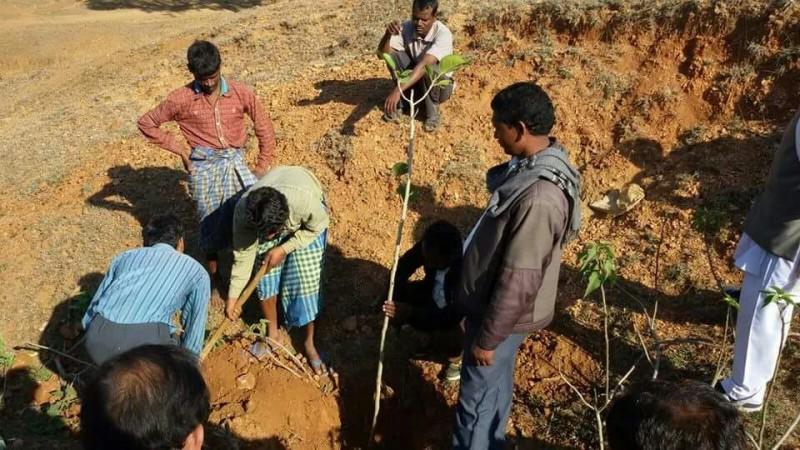
A school in Chhattisgarh took the unique step of not only keeping its students learning, but also helping the environment in the process. Instead of paying annual fees, parents were asked to plant a tree and look after it throughout the year. And after a year of success — during which it has covered quite a bit of barren land on a hill — the school has now increased its fee to three trees per year!
Located in the Bargai village of Chhattisgarh's Surguja district, Shiksha Kuteer started on July 1, 2015, with just a handful of kindergarten students. It now teaches 35 students.
"Most of them are first- or second-generation learners," school sources told International Business Times, India. This means the are probably among the first in their families who are receiving any form of formal education, made possible only because money is not directly involved.
"We started with only one tree or plant, per year, in 2015," said school sources, adding: "The deal was that the parents of students would have to plant a sapling in their homes, and nurture it to full size. However, a few months later we found that many of the saplings had died."
That was when the school authorities decided to shift the planting of trees to a hill behind the school. "We have so far been able to cover two entire hillocks with whatever trees the parents want to plant — fruit-bearing, flower-bearing, or other kinds," school sources told IBTimes India.

"And we have increased the fees this year," they added. "This academic year, we have asked for three trees to be planted. One of them will be on the hill behind the school, while two others will be nurtured as saplings as part of a nursery that is being created. We have provided parents with the seeds, and other materials required to nurture the saplings. These will be planted next monsoon."
They also said: "We hope that this initiative of ours will not only enable our students to come closer to nature, but also stop local deforestation."










